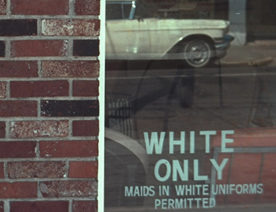
On April 4, 1968, the Rev. Martin Luther King, Jr., was assassinated in Memphis. Most Americans today say at least some of the goals of the 1960’s civil rights movement that he spearheaded have been attained. But black and white Americans differ widely in how they perceive the treatment of blacks and how much it’s improved in the past 50 years, according to a recent poll conducted by The Associated Press-NORC Center for Public Affairs Research. Black Americans are less inclined to see much progress, particularly with regard to law enforcement and the criminal justice system.
In recent years, there have been many high-profile, police-involved deaths of black Americans throughout the country. Nearly three-quarters of blacks say there has been little or no improvement over the past 50 years in their treatment by the police. Two-thirds see little or no progress with regard to blacks and the criminal justice system.
Beyond law enforcement, what is the black experience in communities? Only 18 percent of blacks say blacks are treated the same as whites in their community, while 56 percent say blacks are not treated very well, and 23 percent say they are treated badly. Whites are nearly four times as likely as blacks to say that the races are treated the same in their community.
Forty-five percent of whites and 65 percent of blacks say race relations have deteriorated over the past year, and few expect an improvement in the coming year. Only 10 percent of blacks and 28 percent of whites say that the actions of President Donald Trump have been good for blacks.
The nationwide poll was conducted February 15-19, 2018, using the AmeriSpeak® Panel, the probability-based panel of NORC at the University of Chicago. Online and telephone interviews using landlines and cell phones were conducted with 1,337 adults. For purposes of analysis, blacks were sampled at a higher rate than their proportion of the population, then weighted back to their proper proportion in the survey, according to the most recent census. The overall margin of sampling error for the 388 completed interviews with blacks is +/- 7.3 percentage points at the 95 percent confidence level, including the design effect.



